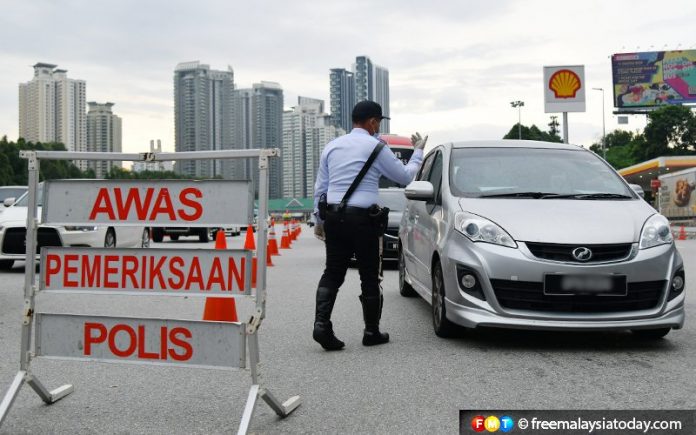
PETALING JAYA: Medical experts and an economist have warned against continuing the varying stages of the movement control order (MCO) for a long period of time, saying the negative impact outweighed its benefits.
This comes after Minister in the Prime Minister’s Department (Special Functions) Mohd Redzuan Yusof announced on Nov 23 that the conditional MCO in several states could last until the end of the year if the number of Covid-19 cases remained high.
Redzuan said preventive measures were being conducted to reduce the number of cases to a minimum and, if possible, to zero.
Speaking to FMT, former deputy health minister Dr Lee Boon Chye strongly opposed the move, saying that continuing the CMCO till the end of the year would have a severe impact on the economy.
Lee urged the health ministry to review the existing measures as it had failed to reduce the number of new infections and clusters.
“The forming of new clusters shows that the capacity to perform contact tracing, testing and isolation is lagging behind the emergence of new cases.”
He said the health ministry should focus on reviewing the measures to prevent new clusters from forming.
“(Health ministry) must increase the capacity for contact tracing, testing and isolation. When all close contacts are isolated, new cases and clusters can be prevented.
“This can be done by building up a special team for contact tracing, led by public health officers, with the aid of the MySejahtera application. The health ministry needs to immediately employ at least 1,500-2,000 staff to assist in contact tracing,” he said.
Meanwhile, the Malaysian Medical Association (MMA) reminded the people that preventing the spread of Covid-19 is a collective responsibility and everyone must do their part.
“The single most important factor is the public’s compliance with the SOPs. With full compliance, the curve will be flattened and there will be no need for a CMCO,” MMA president Dr Subramaniam Muniandy told FMT, adding that the decision to impose a CMCO should be supported with sufficient scientific evidence.
Centre for Market Education Malaysia CEO Carmelo Ferlito estimated that Malaysia would have a near flat gross domestic product (GDP) growth rate if the government decided to prolong the movement restrictions along with the political uncertainty and border closures, among others.
“This year, about 32,000 SMEs (small- and medium-sized enterprises) have already closed down. On top of that, we also have other negative medical consequences, such as delay in cancer screenings and depression,” he said.



